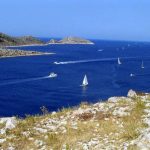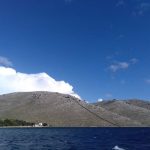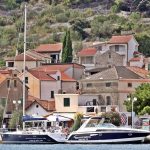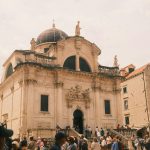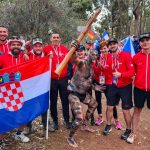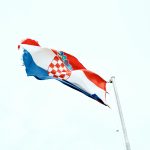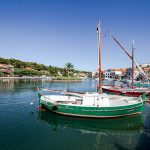A major development project has been set in motion in the Kornati archipelago
Good news for the Kornati islands: the project aiming to protect the natural and cultural heritage of the gorgeous archipelago kicked off earlier this week, reports Maslina on January 5, 2018.
The project will lead to a symbiosis of the Kornati National Park and its population, but it also entails close collaboration with Murter Municipality in regards to protection of olive groves and the renowned dry stone walls of Murter and Kornati.
“We started to renovate a dry stone wall that is 200 metres long and is located in an area called ‘Archaeological bay’ by the people of Murter. Our institution’s employees and the residents of Murter island are working in unison. The pleasure is mutual, and I could only wish such enthusiasm on others”, said Josip Zanze, the director of the Kornati National Park.
“We cannot stand aside and watch the considerable number of olive groves on Kornati [deteriorate], as the aging population doesn’t tend to them anymore. We will hire an agronomist that will protect and manage the olives and the harvest, but also initiate branding our oil, cheese, and the renowned Kornati lamb. To be more precise, this is the work that will benefit both the National Park and its population, a clear example of symbiosis of our institution with the people of Murter and the remaining, mostly elder inhabitants of the [Kornati] archipelago”, Zanze added.
The project, named “Rediviva Kurnata” (Kornati revival), is worth around 58 million kuna. The contract was signed in October 2017, with 85 percent of the expenses covered by EU funding. According to Šibenski portal, the remaining required funds will be provided by the Municipalities of Tisno and Murter-Kornati. The project will be implemented in multiple stages during the next five years and will open 23 job positions.
Rediviva won’t be limited to olive groves and stone walls. As the project aims to attain sustainable growth and management of the area, it will also entail further development of the visitor infrastructure. Kornati National Park will soon have better control of visitors entering and leaving the area, and a more efficient way of charging the entrance fee. The natural heritage of the archipelago will be presented in an attractive way, with educational activities suitable for visitors of all ages.
Multimedia centres presenting the natural heritage and biodiversity of the archipelago will soon open in multiple locations. A former army object on Kornat island will be transformed into a so-called House of the Open Sea that will house an exhibition related to the specific way of life on the Kornati islands, with tradition as the main theme.
The Municipality of Murter and the Kornati National Park are still waiting for a new master plan that is expected to resolve countless zoning problems that have been accumulating for decades. “We believe we will legalise all areas that have so far been called ‘wild’, and thus convince the Kornati population that the National park has their best interest in mind. There’s no doubt that our institution and the Municipality of Murter will become holders of a proper Kornati revival”, concluded Zanze.

